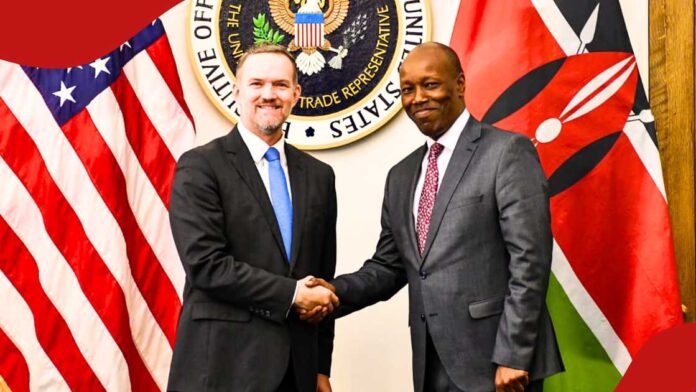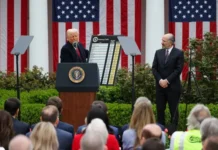With the African Growth and Opportunity Act (AGOA) set to expire at the end of September, Kenya has turned its attention to forging a new, enduring trade pact with the United States.
Trade Cabinet Secretary Lee Kinyanjui has confirmed that Nairobi is pressing the US to initiate formal negotiations toward a reciprocal trade agreement that ensures long-term market access for Kenyan goods in America.
Kinyanjui’s recent meeting with US Trade Representative Jamieson Greer, a follow-up to discussions conducted in May, concluded with both sides agreeing to launch negotiations.
While specifics of the proposed agreement remain undisclosed, Kinyanjui emphasized its importance in establishing stability and encouraging investment.
He noted that “a number of US firms have already expressed strong interest in establishing or expanding their operations in Kenya,” and said concluding the deal would enable such growth.
The urgency surrounding these talks is tied directly to AGOA’s impending expiration. Kenya currently enjoys tariff-free access to the US market for exports such as textiles and macadamia nuts under AGOA a program that has become a cornerstone of its export economy.
President Trump’s reciprocal tariff policy has heightened concerns about what may happen if AGOA is not renewed. As of August 1, Kenya was hit with a 10 percent tariff on exports to the US, signaling potential disruption ahead.
Local media highlight that Kenya is poised to enter formal negotiations for a bilateral free trade agreement (FTA). The approach mirrors earlier efforts under the Strategic Trade and Investment Partnership (STIP) initiated during President Trump’s tenure and later continued under President Biden.
Although STIP was not a full FTA, it sought to address non‑tariff issues and promote investment. With AGOA’s expiry looming, Kenya hopes to elevate those talks into a comprehensive FTA.
Export data underscores Kenya’s reliance on US trade. In the year ending December, earnings from US-bound exports surged nearly 23 percent to Ksh72.96 billion.
Apparel and textiles were among the fastest-growing sectors, buoyed by AGOA’s tariff-free provisions but uncertainty surrounding the trade framework casts a shadow over future prospects.
If AGOA is not renewed, Kenya risks losing vital preferential access. Estimates suggest tens of thousands of jobs, especially in apparel manufacturing, could be threatened. The looming tariffs would increase costs and reduce Kenya’s competitiveness in the US market.
Kenya is not alone in this push. The evolving global trade environment is increasingly defined by bilateralism and strategic partnerships. An FTA with the US would not only safeguard Kenyan exports but also position Kenya as a stable and predictable trade partner amid shifting policy landscapes.
As the clock ticks toward AGOA’s end, Kenya stands at a critical juncture. Success in securing a new trade agreement will determine the future trajectory of its export-led growth, industrial development, and deeper economic ties with its most significant market.
Written By Ian Maleve



















